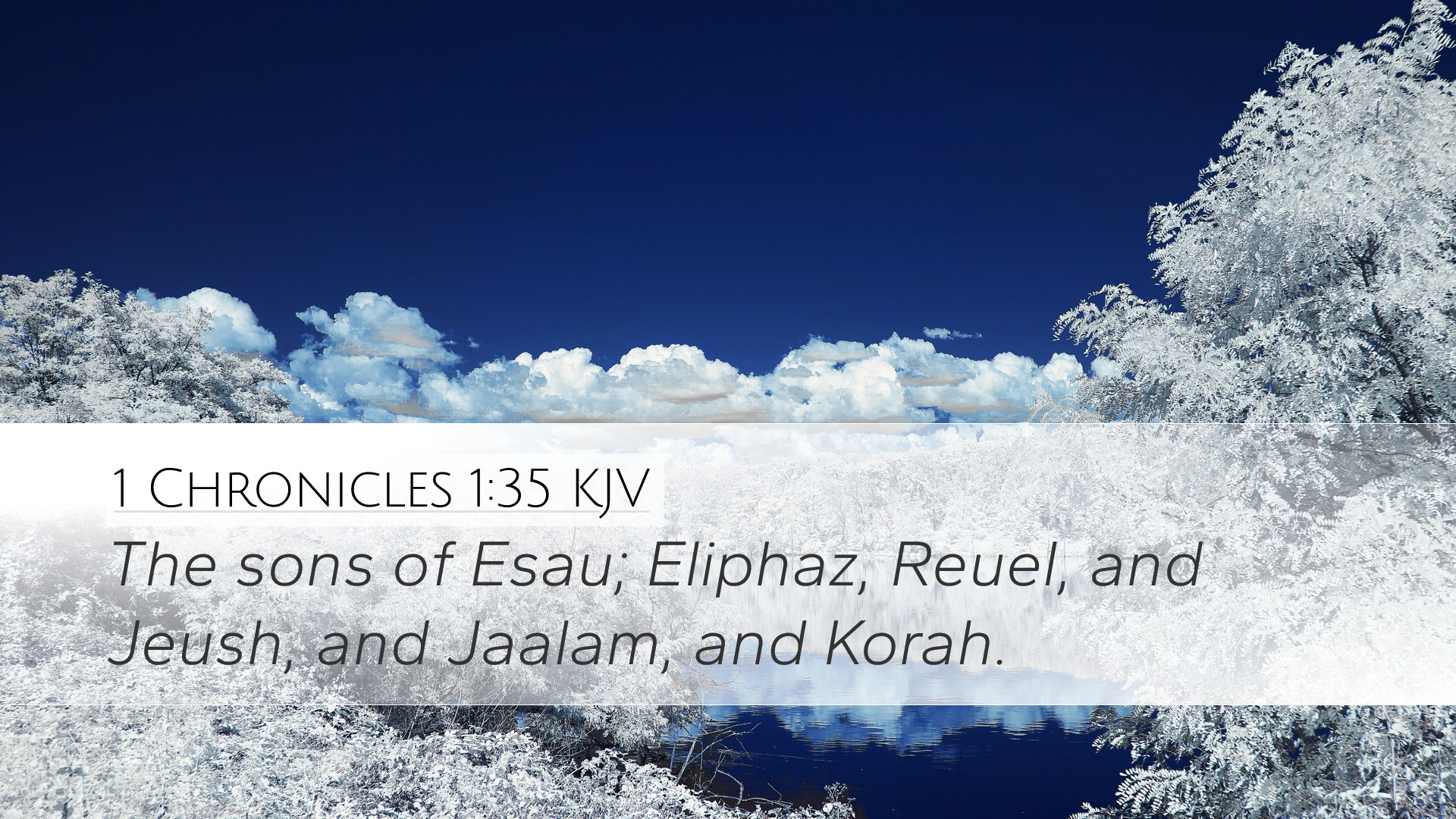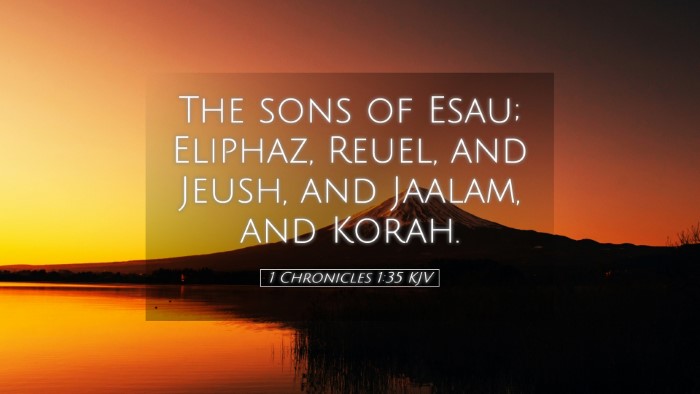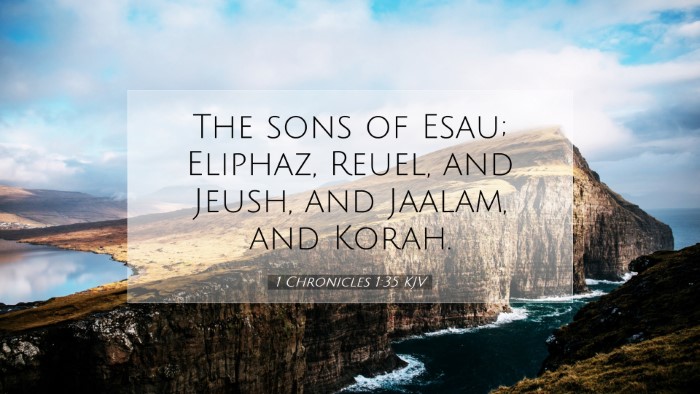1 Chronicles 1:35 - Commentary Overview
Verse (1 Chronicles 1:35): “The sons of Esau; Eliphaz, Reuel, and Jeush, and Jaalam, and Korah.”
This verse introduces the genealogy of Esau, the brother of Jacob, highlighting the significant roles his descendants, particularly the tribes descending from them, would play in the biblical narrative. The reference to Esau's sons serves as a bridge in understanding the lineage and the historical implications of Jacob and Esau's family dynamics.
Contextual Significance
- Historical Background: Esau, known as Edom, was a significant figure whose lineage represents a critical aspect of Israel's history and its neighbors, particularly the Edomites. The genealogy presented in this chapter emphasizes familial ties and the tribal identities that are crucial to ancient narratives.
- God's Covenant: The contrast between Jacob and Esau is pivotal for understanding God's covenant plan. While Jacob became Israel, Esau’s descendants are noted for their own historical and theological developments separate from Israel.
Commentator Insights
Matthew Henry's Commentary
Matthew Henry emphasizes that listing the sons was not merely for cataloging names but served a theological purpose. It underscores God’s election and His overarching plan through lineage. He notes that the mention of these specific sons reminds the reader that even those outside of Israel's direct covenant still play a role in God's purposes. Henry reflects on the personalities of these sons, suggesting that they embody characteristics that often reflect the tumultuous relations between Israel and Edom.
Albert Barnes' Notes
Albert Barnes elaborates on the significance of each name mentioned. He explicitly notes that Eliphaz is often associated with wealth and power, which may symbolize the material success of the Edomite lineage. Reuel, meaning 'friend of God,' indicates that there were moments within Esau’s line that sought after divine favor. The addition of Jeush and Jaalam further emphasizes the expansion of Esau's family, showing prominence in societal structures. Lastly, Korah can lead to discussions about rebellion as a foreshadowing of later conflicts within the Israelite community itself.
Adam Clarke's Commentary
Adam Clarke provides a detailed examination of the genealogical importance of this verse. He points out that Esau’s children represent nations that would later interact with Israel. Emphasizing the geopolitical implications, Clarke notes that understanding these tribes can bring light to the historical struggles Israel faced. He particularly highlights Korah, linking him to the infamous rebellion against Moses, showcasing how the familial lineage can lead to both noble and treacherous paths. Clarke's analysis accentuates the necessity of recognizing the names within these genealogies to appreciate the narrative's depth.
Theological Reflections
- Divine Sovereignty: The enumeration of Esau's sons reiterates the idea of God’s sovereignty over nations and peoples. This genealogy emphasizes that all lineages and histories ultimately serve God’s purposes.
- Lessons on Identity: For pastors and theologians, this verse opens discussions on how identities are structured through family histories and how they inform present relationships and community dynamics.
- Precedents of Conflict: The tension between Jacob and Esau carries forward into their descendants. Understanding this history can lead to important teachings about conflict resolution and reconciliation within the church and broader society.
Conclusion
The listing of Esau’s sons in 1 Chronicles 1:35 serves as a foundational entry point into understanding the narrative of Israel and its neighboring nations. Through the insights provided by Matthew Henry, Albert Barnes, and Adam Clarke, scholars are encouraged to reflect on these names in their historical, theological, and practical implications. The genealogical records in Scripture are more than just echoes of the past; they beckon readers to explore the complexities of relationships, divine intentions, and human history, fostering greater understanding in both personal faith and communal worship.


